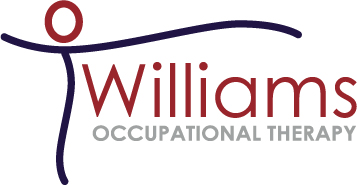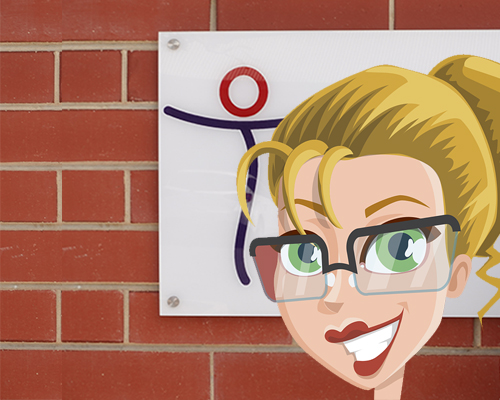Complaint Management Policy
Policy statement
Compliments, complaints and other forms of feedback provide valuable information on levels of client satisfaction and provide Williams Occupational Therapy with an opportunity to improve upon all aspects of service. Feedback is taken seriously and is seen as an opportunity for improvement.
Recorded and effectively handled feedback provides valuable information in identifying areas for improvement, coordinating approaches for resolution, reducing the potential for future complaints, and allow for reporting and efficient allocation of resources.
Resolving complaints at the earliest opportunity in a manner that respects and values the person’s feedback is essential in recovering the individual’s confidence about services offered by Williams Occupational Therapy. A responsive, efficient, effective and fair complaint management system can assist Williams Occupational Therapy in preventing the escalation of complaints.
What does Williams Occupational Therapy do?
Williams Occupational Therapy provides timely and thorough driving assessments and rehabilitation programs to maximise individuals’ safety and independence. Whether a client’s license has been revoked or their capacity to drive is compromised, Williams Occupational Therapy is able to assist and guide clients and their families through the process of regaining community mobility.
The Williams Occupational Therapy team is highly skilled, with expertise in:
- Assessing drivers following neurological, physical, visual and psychological injury
- Developing rehabilitation programs for drivers of cars, heavy vehicles and work-related vehicles
- Recommending vehicle modifications and installation of adaptive equipment
- Providing ergonomic vehicle assessment to prevent stress injuries
- Training clients in alternative community mobility options when driving no longer suitable
The Williams Occupational Therapy OTs work with the Department of Planning, Transport and Infrastructure (DPTI), referrers, clients and their families to ensure safe, soundly justified and well understood outcomes are achieved.
Williams Occupational Therapy OTs remain working with clients through the entire process of returning to driving, providing continuity of care and an efficient, cost effective service.
Definitions
Apology – a regretful acknowledgement of an offence or failure; an admission of error or discourtesy accompanied by an expression of regret.
Complainant – the party who makes the complaint
Complaint – an expression of dissatisfaction made to or about an organisation, related to its products, services, staff or the handling of a complaint, where a response or resolution is explicitly or implicitly expected or legally required
Complaint management – a set of procedures used by the organisation to address complaints and resolve disputes
Compliment – an expression of praise, encouragement or gratitude about a service, a staff member, or a whole team
Guiding Principles
The Williams Occupational Therapy Complaint Management Policy and associated procedures are underpinned by the following guiding principles:
- Williams Occupational Therapy’s health services are committed to clients and quality improvement
- Clients and their families and/or carers are encouraged and enabled to provide feedback, including complaints, about services provided by Williams Occupational Therapy
- Complaints are assessed by considering risk factors, the known facts, the wishes of the complainant and accountability of health service staff
- All complaints are recorded to enable review of individual cases, to identify trends, and report on aggregated complaint information
- Complaint management policy, procedures, and data are regularly evaluated, and the information is used to improve services provided by Williams Occupational Therapy
People focus
Williams Occupational Therapy:
- Recognises and respects everybody’s right to provide feedback
- Demonstrates a commitment to addressing feedback in a timely manner and without charge to the client
- Involves the complainant in the process as far as is practicable and appropriate
Recognises everyone’s right to work in a respectful, safe and healthy workforce free from all forms of violence, harassment and discrimination - Deals with complaints in a manner that is effective, complete, fair to all parties, and provides just outcomes
Remedies
Williams Occupational Therapy will:
- Attempt early, informal resolution and compromise wherever possible, at the lowest level possible
- Offer remedies that are fair to all parties, minimising the possibility of ongoing dispute
Visibility and accessibility
Williams Occupational Therapy will:
- Ensure clear information is available on its website (williamsot.com) about how and where to make a complaint and how complaints are managed
- Provide reasonable assistance to complainants with additional needs in making complaints
Recognise and address complaints provided anonymously, or through an authorised third party (e.g. NDIS case manager) in the same manner as any other complaint
Responsiveness
Williams Occupational Therapy:
- Records, tracks, acknowledges and processes complaints in a timely manner, in accordance with the Williams Occupational Therapy in-house complaint procedure
- Ensures that the complainant is aware of the process, timeframes, their likely involvement, the possible outcomes of the complaint, and any other necessary information
Objectivity and fairness
Williams Occupational Therapy:
- Manages complaints objectively and deals with them fairly, respectfully, consistently, in accordance with the principles of natural justice and without actual, potential or perceived conflicting interests
- Takes all reasonable steps to ensure that a complainant is not adversely affected
- Deals with complaints confidentially to the extent possible and with personal information in accordance with the Information Privacy Act 2009
- Refuses to investigate a complaint if it is considered to be abusive, trivial or vexatiousFeedback
Williams Occupational Therapy will provide adequate and timely feedback on complaints to all parties.
Monitoring and Reporting
Williams Occupational Therapy:
- Records and reports complaints in accordance with legislative and other requirements
- Is committed to using complaints as an essential tool for continuous improvement
Resources and training
Williams Occupational Therapy:
- Ensures adequate resources (including training where required) are available.
- Empowers its staff to implement the Williams Occupational Therapy Complaint Management procedure as appropriate
Complaint handling considerations
Anonymous complaints
Anonymous complainants should be advised that an investigation’s complexity increases if identities are not divulged, as it severely limits Williams Occupational Therapy’s ability to obtain information.
Anonymous complainants should be informed of confidentiality to encourage them to reveal their own and/or the subject’s identity.
An anonymous complainant needs to be informed:
- There will be disclosure of information to any respondents identified:
- Information provided to Williams Occupational Therapy under the pretence of “off the record” does not apply.
- What will happen with the information provided to Williams Occupational Therapy about the issue raised?
- Williams Occupational Therapy respects the complainant’s wishes. However, absolute confidentiality cannot be given.
Anonymous written complaints may reveal the identity of the complainant, or it may be apparent from the complaint details. An inquiry may be possible and may be warranted if the complaint raises public health and safety concerns or where external agencies (such as NDIS Commission) may need to be notified.
Old complaints
Williams Occupational Therapy is only able to investigate and attempt to achieve resolution if a complaint is made within 12 months of the incident or issue occurring.
If the passage of time has been considerable, it may affect Williams Occupational Therapy’s capacity to investigate the complaint, and these constraints should be discussed with the complainant.
If it is not possible to investigate the facts of the case, an attempt should be made to achieve a resolution with the complainant.
Declining to deal with a complaint
Williams Occupational Therapy may decide to decline to deal with a complaint because it is:
- Vexatious or frivolous
- Outside jurisdiction
- The subject matter of the complaint (or part of the complaint) has been or is under investigation by some other competent person or body or has been or is the subject of legal proceedings.
If a complaint is declined, complainants should be advised of the reasons for the decision, as well as other agencies that may be able to assist them with their concerns.
Vexatious or frivolous complaints
Matters that are clearly insufficient in substance or are not calculated to lead to any practical result
Vexatious or frivolous complaints are likely to have one or more of the following characteristics:
- Essentially illogical (e.g. no cause or relationship is effectively established between an alleged act and its alleged consequences)
- Not logically impossible but requires a great deal of faith to agree to the likelihood (e.g. a complainant alleges they have become caught in a conspiracy)
Complainant ignoring requests to provide specific information to back up the original complaint
Of little or no weight or importance; not worth serious attention
Manifestly futile
Complaint Management Procedure
The complaint management procedure follows nine steps. These are further outlined in the Williams Occupational Therapy Complaint Management Procedure.
- Receive
- Record
- Acknowledge
- Complaint assessment
- Investigation
- Respond
- Resolve
- Communicate resolution
- Complaint handling considerations
- Receiving a complaint
Any person may make a complaint. To enable the timely consideration of a complaint, specific details of the incident, conduct or behaviour giving rise to the complaint should be provided by the complainant.
Complaints can be made over the phone, or in writing. Williams Occupational Therapy encourages complaints, where possible, to be submitted in writing (by email or letter)
The Williams OT website Contact page outlines that we are welcome of feedback and complaints and there is a link to our Complaint Policy.
In most circumstances, the complaints handling officer will be a member of Williams Occupational Therapy staff, who will act as a central contact point.
As outlined in all service agreements with NDIS clients, If you don’t have success getting your problem resolved, you can contact the NDIA using the complaint pathway. 1800 800 110 Website: ndis.gov.au – see below – Making a Complaint to the Commissioner
A complaint, or any feedback, can be made by:
Telephone: 08 8166 0767
Email: admin@williamsot.com
Letter: PO Box 144, Blackwood SA 5051
Website: williamsot.com/contact
Making a complaint to the Commissioner
(1) A person may make a complaint to the Commissioner in relation to an issue arising out of, or in connection with, the provision of supports or services provided by an NDIS provider.
(2) A complaint:
(a) may be made orally, in writing or by any other means which is appropriate in the circumstances; and
(b) may be made anonymously.
(3) The complainant may ask the Commissioner to keep any of the following information confidential:
(a) the identity of the complainant;
(b) the identity of a person identified in the complaint;
(c) any other details included in the complaint.
(4) The Commissioner must take reasonable steps to ensure that:
(a) appropriate support and assistance is provided to any person who wishes to make a complaint; and
(b) a person making a complaint, and persons with disabilities affected by a complaint, are provided with information about accessing an independent advocate.
Williams OT will refer to the National Disability Insurance Scheme (Complaints Management and Resolution) Rules 2018 for further clarification regarding NDIS participants and complaints. These can be found at F2018L00634.
Access to the full Williams OT Complaint procedure policy can be made available upon written request.


